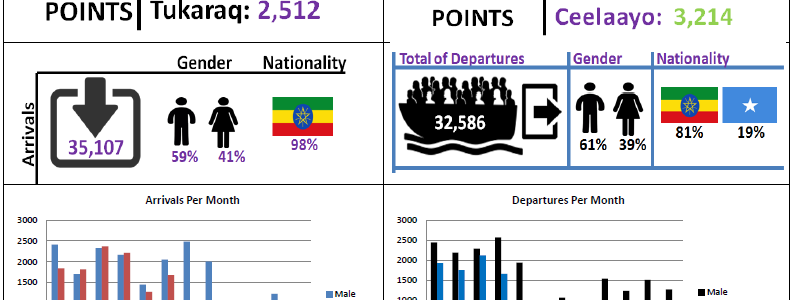Bareedo Platform Somalia supported the Department of Refugees, Returnees and Mixed Migrants (DRRMM) under the Ministry of Interior of Puntland, in development and designing of a set of comprehensive tools and operational procedures for managing mixed migration. This support and technical assistance significantly strengthened the department’s institutional capacity to monitor and respond to complex and evolving migration flows across the region. Bareedo Platform also contributed to enhancing the technical skills of both frontline and central staff in critical areas such as data collection, entry, analysis, and reporting.
As a result of this technical assistance, DRRMM began producing monthly, quarterly, and annual mixed migration movement reports, based on data collected from key entry points—including Tukaraq, Dhahar, and Alxamdulilah—and exit points such as Bosaso, Ceelaayo, and Mareero in Puntland, Somalia. These data outputs have played a crucial role in supporting evidence-based planning, policy-making, and protection programming.
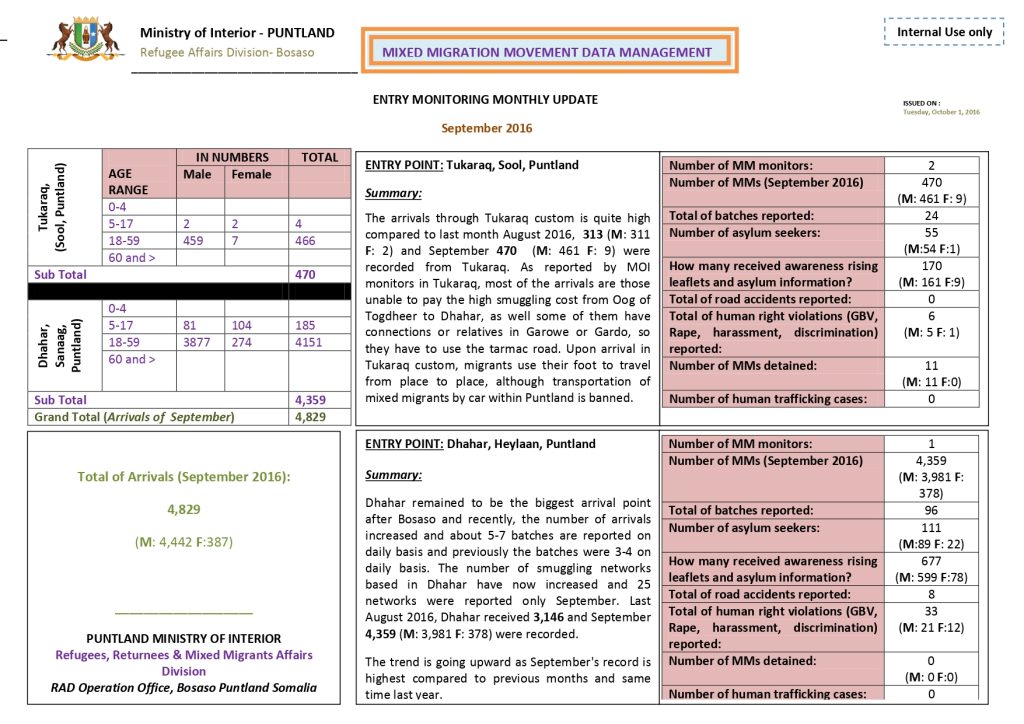
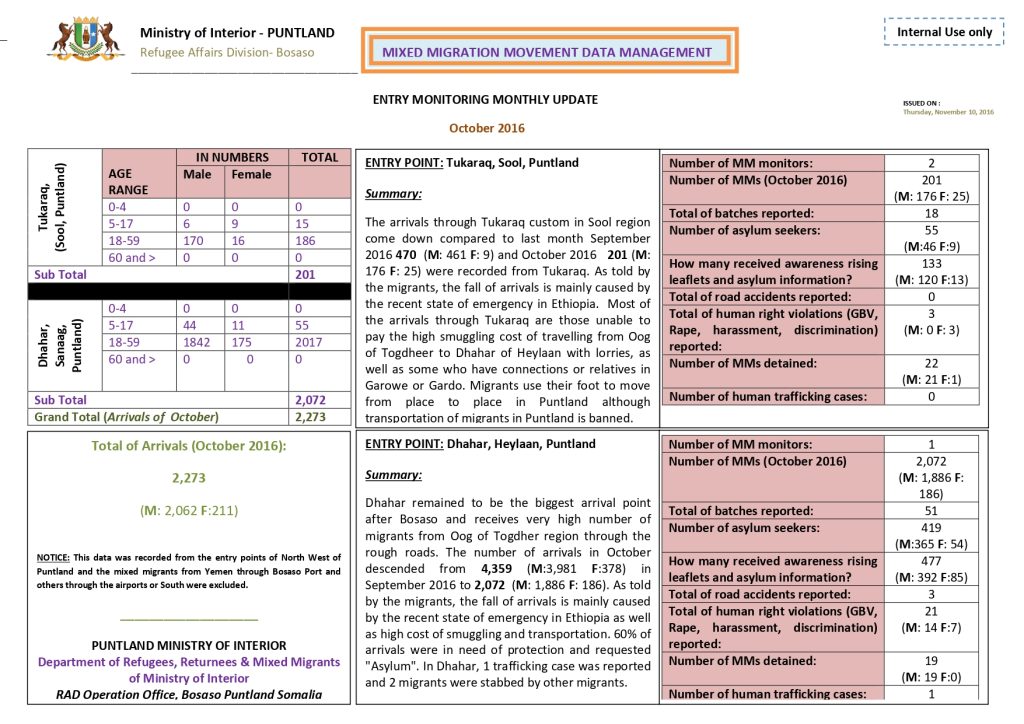
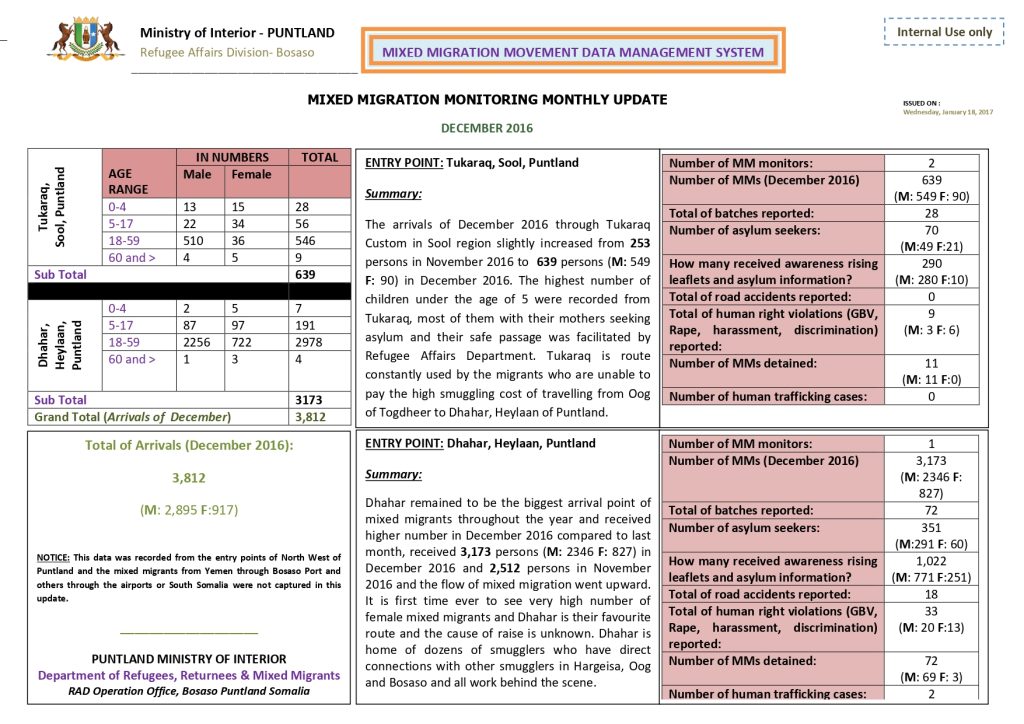
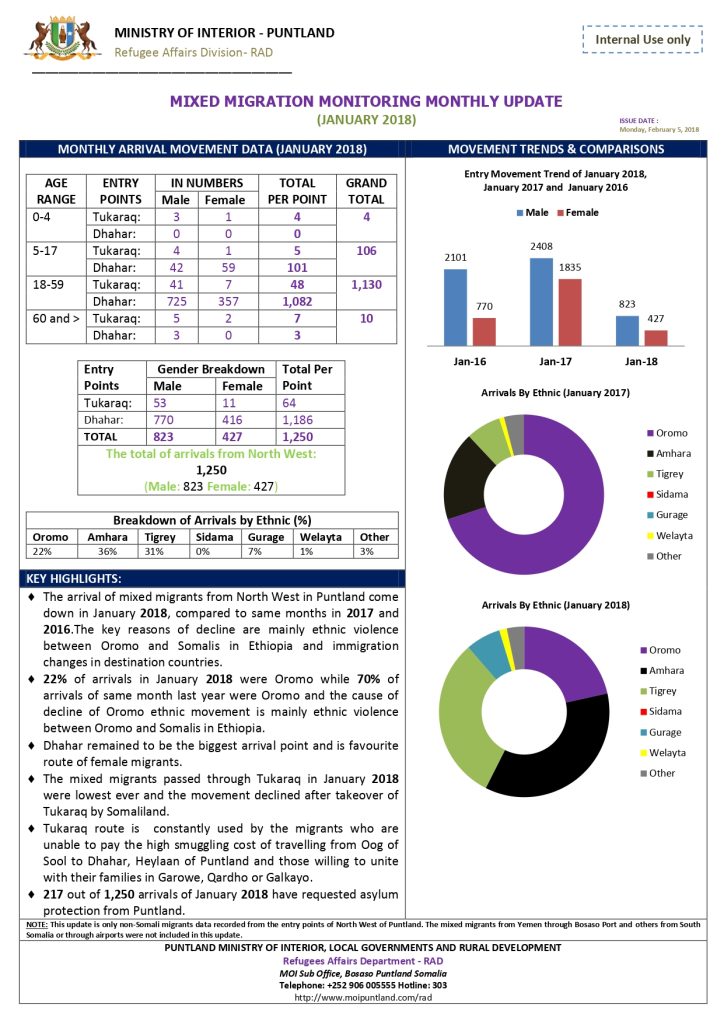
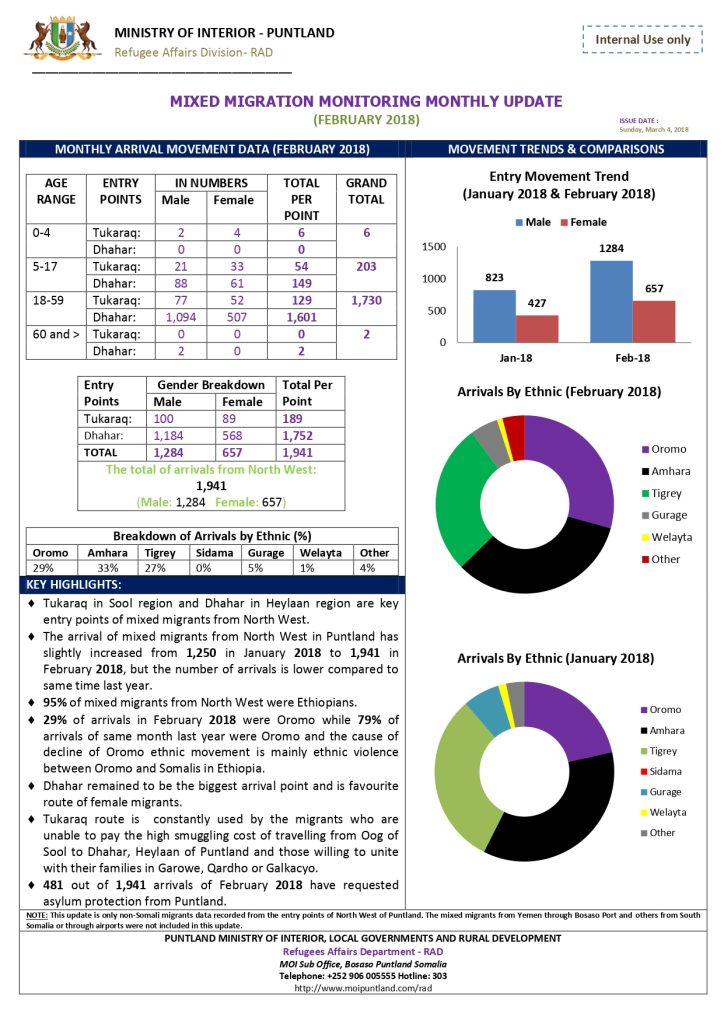
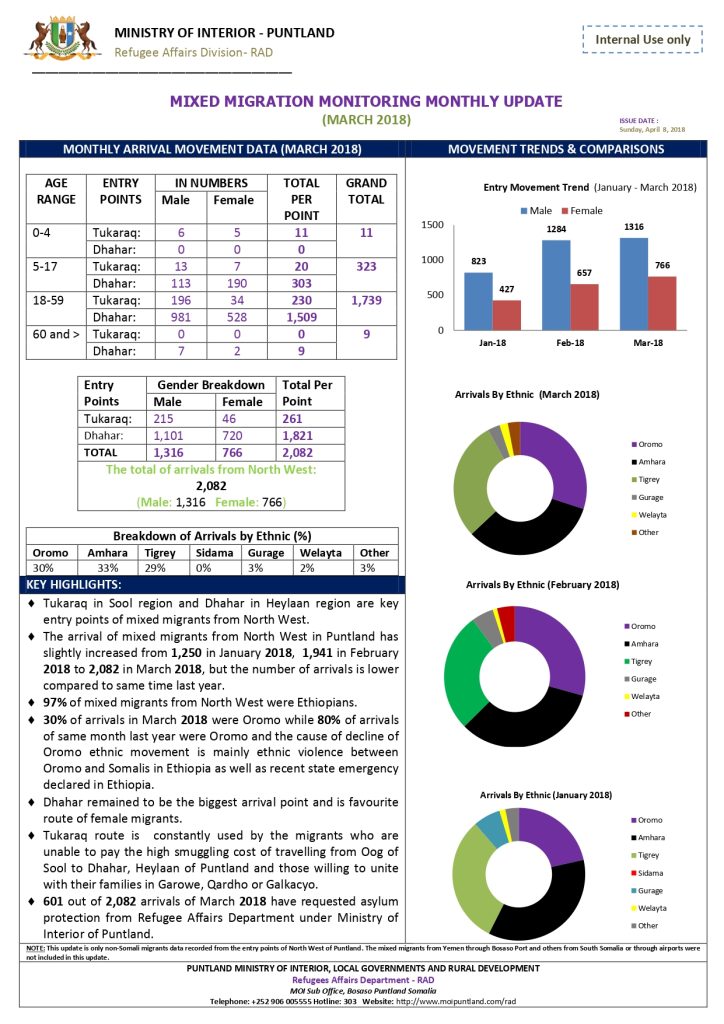
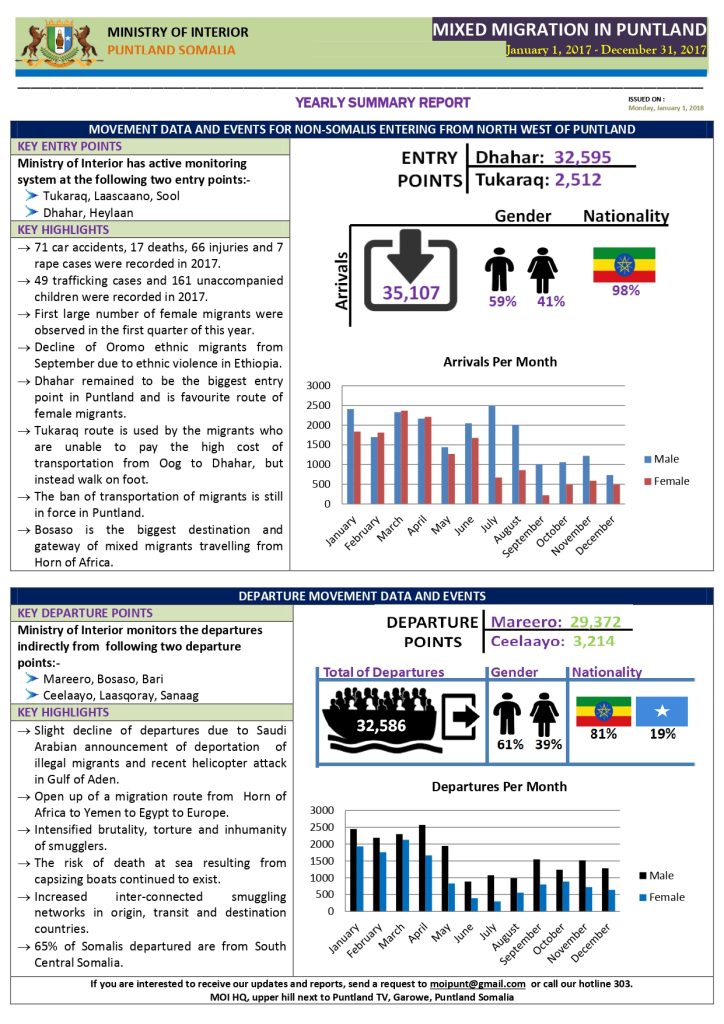
Accurate and timely data production plays a critical role in shaping effective responses to mixed migration. In dynamic contexts like Puntland—where migration flows are driven by a complex mix of conflict, economic hardship, environmental factors, and cross-border mobility—producing, managing, and analyzing migration data is essential for government authorities, humanitarian actors, and development partners.
- Informs Evidence-Based Decision-Making: Reliable migration data enables policymakers and practitioners to understand the scale, patterns, and characteristics of population movements. Disaggregated data—by age, gender, nationality, and push/pull factors—helps stakeholders make informed decisions about resource allocation, protection priorities, and legal or policy reforms. It moves decision-making away from assumptions toward evidence-driven planning.
- Improves Service Delivery and Protection Responses: Data production supports the targeting of services to the most at-risk groups, including unaccompanied minors, women at risk of gender-based violence, or trafficked persons. By understanding where migrants are located, what their needs are, and how they are moving, actors can tailor their interventions—such as healthcare, shelter, legal aid, and psychosocial support—more effectively and equitably.
- Strengthens Early Warning and Crisis Preparedness: Continuous migration monitoring provides early indicators of stress or crisis—such as spikes in arrivals, mass returns, or changes in migration routes. This allows governments and humanitarian agencies to anticipate emerging risks, respond proactively, and prevent escalation into humanitarian emergencies.
- Supports Coordination Among Stakeholders: Data production creates a shared evidence base for national and international stakeholders, fostering better coordination between government ministries, civil society, and international organizations. This reduces duplication of efforts and strengthens collaborative planning and joint programming.
- Enhances Transparency and Accountability: A transparent data system enhances public trust in migration management institutions and supports accountability mechanisms. It helps ensure that migration governance is grounded in rights-based approaches, and that services are reaching those who need them.
- Feeds Into Regional and Global Migration Dialogues: Locally produced data contributes to national migration statistics and can feed into regional and global frameworks, such as the Global Compact for Migration or regional early warning systems. Puntland’s data, for example, plays an important role in shaping Horn of Africa-level migration responses and international cooperation on border and mobility management.
- Supports Long-Term Policy Development: Over time, consistent data production builds institutional memory and trends analysis, which are crucial for designing long-term migration policies, integration strategies, and development plans. This includes migration’s impact on urban planning, labor markets, and social services.
In summary, data production is not just a technical activity—it is a foundational pillar of effective, humane, and rights-based migration governance. Investments in data systems, capacity building, and information-sharing mechanisms—like those supported by Bareedo Platform and DRRMM—are essential to ensure that migration in Puntland is managed responsibly, inclusively, and in the best interest of both migrants and host communities.

